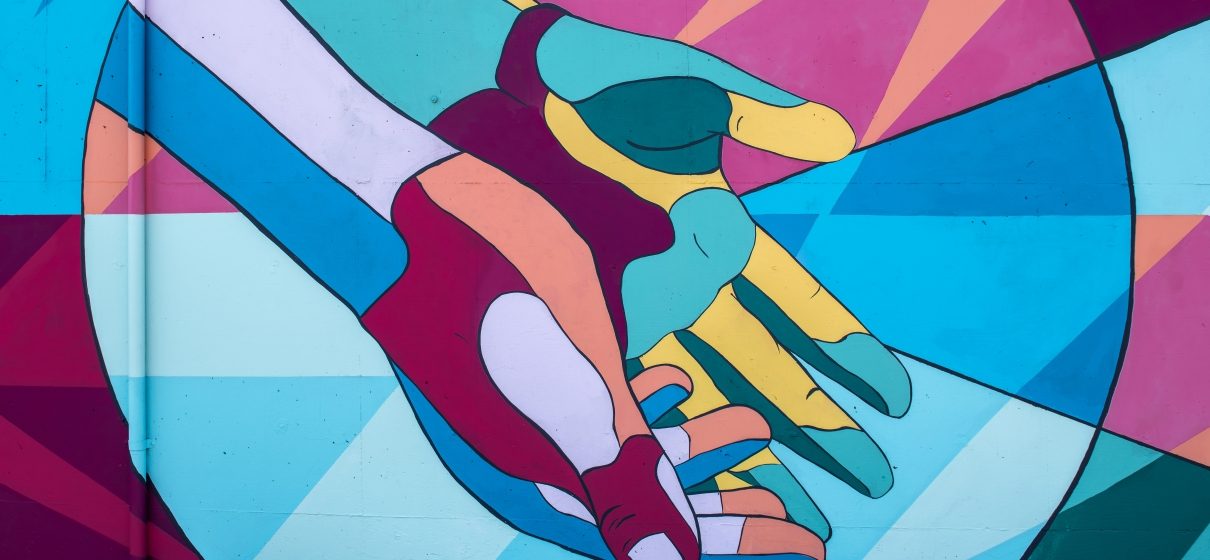5 Tips for Parenting in the Digital Age
Technology is everywhere. Even our children are enamored by digital assistants, surrounded by personalized ads, and immersed in multiple devices. It’s changed the ways families live and interact.
There are wonderful graces that accompany these advances. Information is more portable and accessible. We are able to stay connected to family and friends hundreds of miles apart.
As parents, though, we wonder how much technology consumption is just right for our children at every developmental stage. Every child and situation is unique, so it seems as if none of the answers we find online fit perfectly.
Even so, there are some guidelines which can inform family discussions and illuminate decision making for families seeking to navigate this brave new world.
Here are five principles to consider as you lead your children through their interactions with technology in today’s environment.
1. Connect with other parents.
Partner with parents who share your values and who are navigating this journey simultaneously. For us, this occurred in our small group. We had parents to bounce ideas off of, to share experiences, and help keep abreast of emerging trends.
2. Check the Content.
Scrutinize. Be a gatekeeper. Common Sense Media is a solid place to start. They have age-graded reviews and resources ranging from movies to video games to social media and other online platforms. In the beginning, movies and video games are the “content” most parents must monitor.
Over time, apps, websites, social media ought to be considered content as well. Think about what your child interacts with the most. Does every child in your family need the same restrictions? Why or why not?
3. Chaperone your Child.
The word chaperone conveys this idea of going with, or alongside, someone. It’s not an end destination, but it needs to be on the path toward autonomy and not a forgotten rest stop. Checking out the content and checking on your child are two different things. One monitors media, the other monitors behavior.
As parents, we like to threaten our kids with things like, “Well, who do you think is paying for that?” But honestly, does “Who is paying” matter? What happens if the young person gets a job and starts paying? What if they go behind your back to get a cheap throw away phone? For every guideline, for every rule you put in place, explain why. Because one day, you want them to be able to think through new problems with a solid rationale. One day, they will be paying. What do you want them to know? What skills do you want them to possess?
All of it begins with you being a role model and leader in your own home. Start by addressing your own sinful patterns with respect to technology—and walk alongside your child as you both strive to strike a healthy balance in your media consumption.
Children have a hard time processing why you can be on your phone, but they aren’t allowed to be on their device. If they see you tied to your own technology, and if that tie interferes with your interactions with them, be prepared for some dissonance. If devices must be powered down at night or charged in a central location, consider making it a house rule instead of a child-only rule.
4. Counsel with Conversations.
You must create open lines of communication and trust so your children will come to you when they have problems. Counsel doesn’t mean you just give your kids advice.
Young people want to know, “Why are you talking to me?” They have the ability to look up everything you are saying on the internet. They don’t need you to answer random trivia questions or to show them how to fix anything.
Was the internet around when you were a kid? So, why are you worthy of speaking counsel into their lives? Trust is the ultimate goal of your relationship with your child.
5. Create Healthy Habits.
There will be times when your child is not physically with you. They may be playing with friends, at a sleepover, or at school. You will not be able to control what they are exposed to via other children’s devices. However, you do have the opportunity to build healthy habits and to talk through possible scenarios.
- What will you do when you see something inappropriate on someone else’s phone?
- How do you react when the music being played is crude or vulgar?
- What questions should you quickly ask before someone offers to share a picture or video?
Many of these situations happen organically and your child must respond quickly. Sometimes, they must choose what to say or do after the fact. Counseling them before and after incidents occur helps to build healthy habits and gives your children tools for proactively protecting themselves from inappropriate content or behavior from others.
There are things we have to address as parents that generations before us never did. But the goal remains the same as it always has. We want to raise our children to be thriving, contributing members of society, to look on others with compassion and kindness, and to love Jesus with everything they have.










